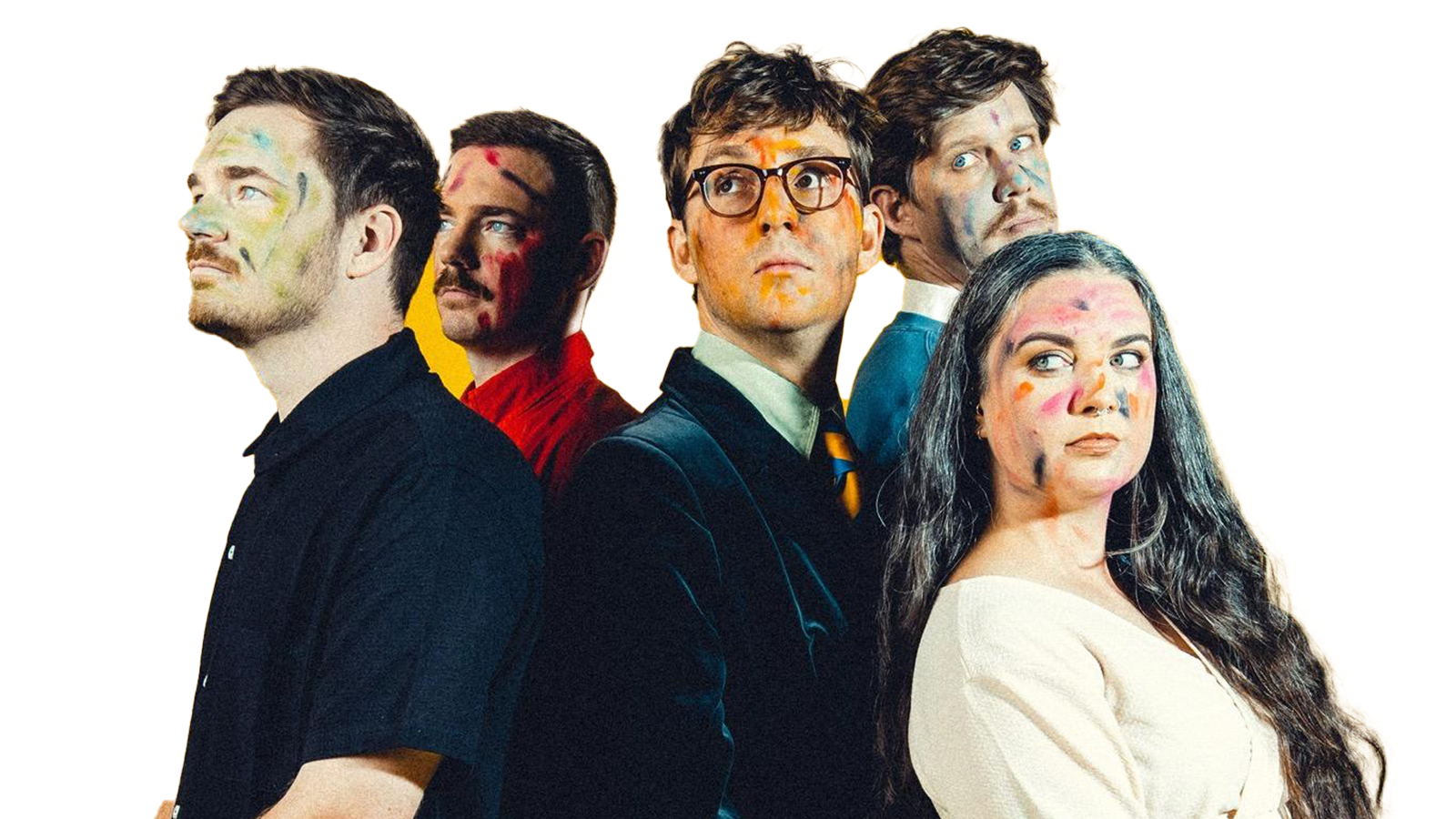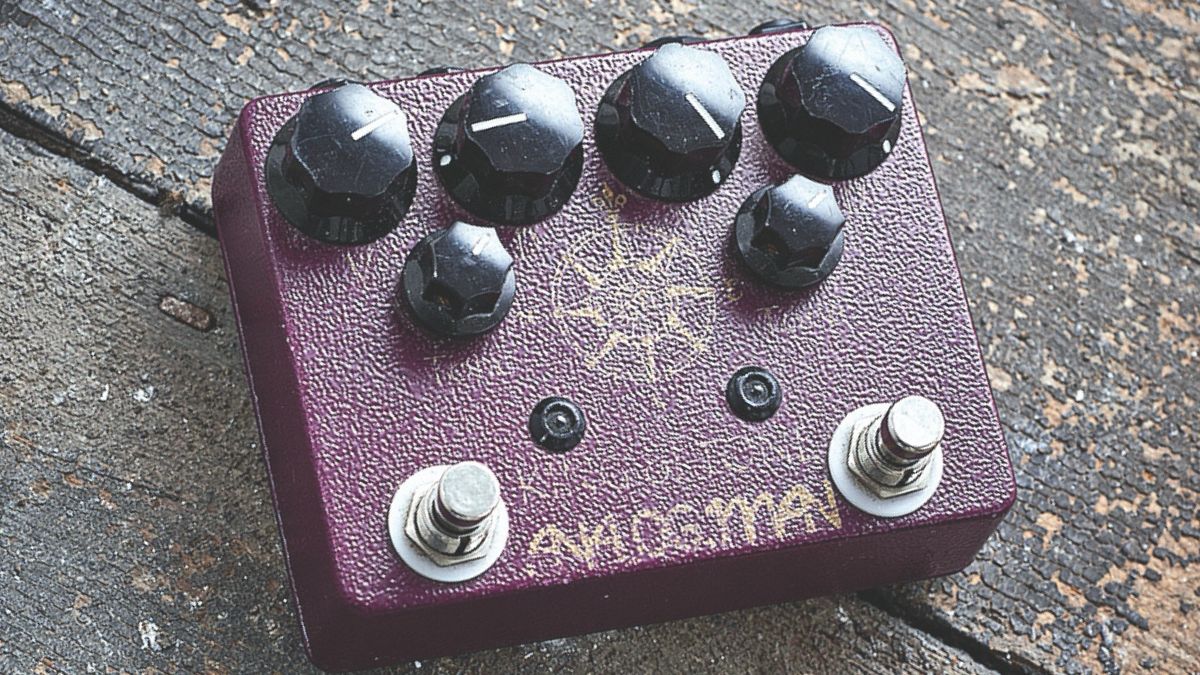Ball Park Music: “We just go with whatever feels right at any given moment”
With touring off the cards for their sixth album, Ball Park Music looked to LP7 as a yearlong effort to chisel out a true masterpiece

All the latest guitar news, interviews, lessons, reviews, deals and more, direct to your inbox!
You are now subscribed
Your newsletter sign-up was successful
There’s a great many reasons to love Ball Park Music, not the least of which being their shit-hot indie-rock. Another is their consistency: without fail, you can expect a new record from the Brissy-native quintet every two years. It’s a tradition they’ve kept alive for a flat decade now, the only exception being their 2012 sophomore effort, Museum (which came just over a year after Happiness And Surrounding Suburbs). Without the chance to tour their self-titled 2020 album, the band had a wealth of extra time to work on this year’s album.
So in a first for the band, Ball Park Music spent the entirety of 2021 slowly chipping away at a record, moving into a brand new studio – “a little timber cottage in The Valley, which was once part of Brisbane’s first Italian restaurant, Mama Luigi’s” – and making LP7 their full-time bread and butter. As frontman Sam Cromack explained in announcing the album, “This is probably the most time we’ve spent all together, day-in and day-out, just making music together. We really threw it all at the wall for this one.”
The end result is Weirder & Weirder, an aptly titled effort for the times it was conceptualised, tracked and released in. Before Ball Park Music embark on a lofty national tour in support of it, we caught up with Cromack and rhythm guitarist Dean Hanson to go behind the scenes on Weirder & Weirder.
What was that experience like, being able to really take your time with this record and let the ideas bloom more naturally?
Cromack: I think some of it came out of necessity. Even though we’ve always worked pretty quickly and managed to churn out a record every two years, it sort of felt like we’d started this one a bit prematurely. A lot of it had to do with the nature of COVID – Jen wasn’t living in Brisbane when we started, but she had to come up here to do some shows, and then she got stuck up here with all the border bullshit. So we said, “Well, we’ve got a few songs kicking around, and we’ve got this space to work in – why don’t we just start messing around and see what happens?”
So we began in earnest and did a few songs, and we were having fun with it at first, but then we fully hit... I don’t know if I’d call it a ‘roadblock’, but around the halfway point, we were like, “Hold on, what are we doing? Do we even have enough songs to finish this record?" It was the first time we’d been writing and recording an album at the same time; we’ve always gone into recording with everything more or less completely written, but this one was a lot more oped-ended.
The opening track, ‘Manny’, was made in a really spontaneous and collaborative way – much more collaborative than any song we’d done the past. I usually come in and will be like, “Here’s a song!” But with this one, it was more like, “Here’s a riff – what can we do with it?” We had moments like that [with this record] – it was much more flexible.
Did you find that certain songs world evolve quite expansively over time?
Cromack: Absolutely, yeah. We did three or four versions of some songs, and some of them went through massive reinventions. There was one song that we even performed live, and then later on we were like, “Nah, it’s not right,” and we ended up massively remaking it – and that became our latest single, ‘Stars In My Eyes’.
All the latest guitar news, interviews, lessons, reviews, deals and more, direct to your inbox!
Hanson: It was funny – I made a post on Instagram about the record coming out, and a guy replied, like, “Hey, did you change the name of this song? Because I remember you guys played it live, and it was really sick.” And I was just like, “Man, that’s the same song, it’s just completely different now.”
Do you think some of those more “out-there” demos could find a second life in the future?
Cromack: Yeah, we’ve talked about putting some of them out. There’s a bigger and bigger pile of demos growing all the time. We’re definitely not opposed to doing a compilation of them, or something like that – we just haven’t found the time or the energy to make it happen. But yeah, it’s always fun going back to those early versions.
In having so much time to experiment with these songs, did “Weirder & Weirder” become somewhat of a mantra for the process?
Cromack: I think the record was essentially done when we chose that title. It’s been a long time since we’ve embarked on a record with a title set out from the beginning. Typically we finish the record, and then we’re like, “F***, what should we call it!?” We’ve also never had a title track before – we’ve had songs with a title that we like and think would be worthy of an album title, but then we’d start thinking, “Will this draw too much attention to that particular song? Maybe that song’s not worthy of the scrutiny.” But clearly, we didn’t feel that way this time.
And yeah, it’s funny, I do wonder if people will think, “Oh, is this album going to be super duper weird?” I don’t know if it is, but I do think we’re always trying to push the limit and experiment. But it definitely wasn’t a mantra to begin with – I think it has more to do with the times and how we all feel, not just because of COVID, but generally too, getting older and feeling weirder and weirder in your own head.
As guitarists, what were some of the techniques and styles you were keen to explore on this record?
Cromack: I think we always try to at least get a few new guitars in the room – I’m sure you know as well as we do, a new instrument can provide all the inspiration that you need. Dean had a new Strat, which was beautiful, and I borrowed a friend’s 12-string Danelectro – which I’ve now bought off him because I loved it that much – so there were some new instruments in the mix, and that always inspires the playing. But Dean and I think a little bit more outside of the frame when we’re making music – I think we see ourselves as producers and songwriters first and foremost, as opposed to guitarists.
Hanson: The way we made this record – and a lot of stuff we’ve been working on in the last couple of years – was a lot of just sitting and jamming the song together, without talking about parts or considering how they worked in the song. We just kind of find where we sit in the song, and let it go from there. A lot of other guitarists might be really particular about what their part is, and focus a lot more on perfecting it and learning it by heart. But we just go with whatever feels right at any given moment. I think that just comes naturally after performing with someone for such a long time.
So when you play these songs live, do take on a different colour or personality?
Cromack: Yeah, I think it’s early days for these songs, but our general attitude towards performing live has shifted much more towards that. There was definitely a phase – I think around the time we put out our third record, Puddinghead – where I was much more obsessed with the performance, having all the elements of a song be extremely true to the recorded version. But as we’ve gotten older, we chucked that ethos in the bin and realised that when we play a song live, it can be whatever it needs to be. And that feels really liberating. It’s just about listening to the band and being like, “Okay, what does this song need to kick ass when we play it live?”

Ellie Robinson is an Australian writer, editor and dog enthusiast with a keen ear for pop-rock and a keen tongue for actual Pop Rocks. Her bylines include music rag staples like NME, BLUNT, Mixdown and, of course, Australian Guitar (where she also serves as Editor-at-Large), but also less expected fare like TV Soap and Snowboarding Australia. Her go-to guitar is a Fender Player Tele, which, controversially, she only picked up after she'd joined the team at Australian Guitar. Before then, Ellie was a keyboardist – thankfully, the AG crew helped her see the light…
- Ellie RobinsonEditor-at-Large, Australian Guitar Magazine
